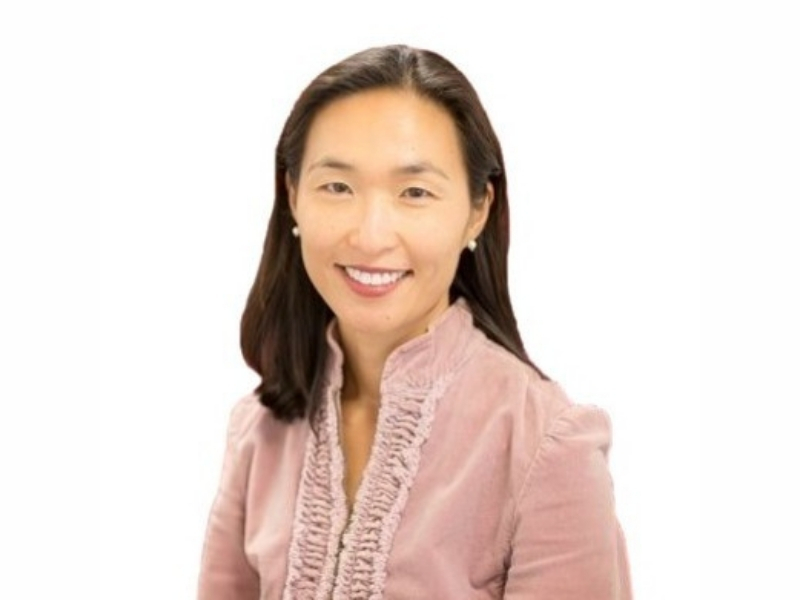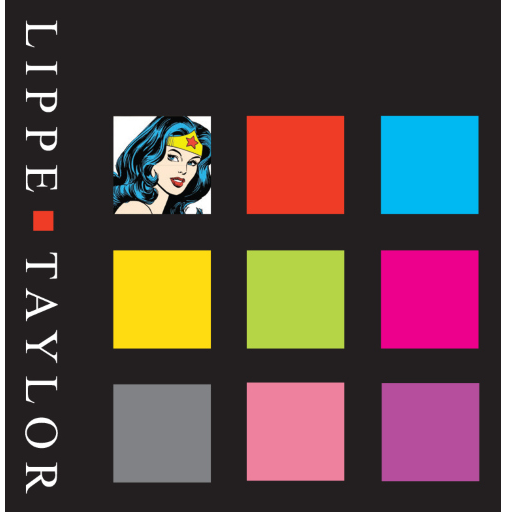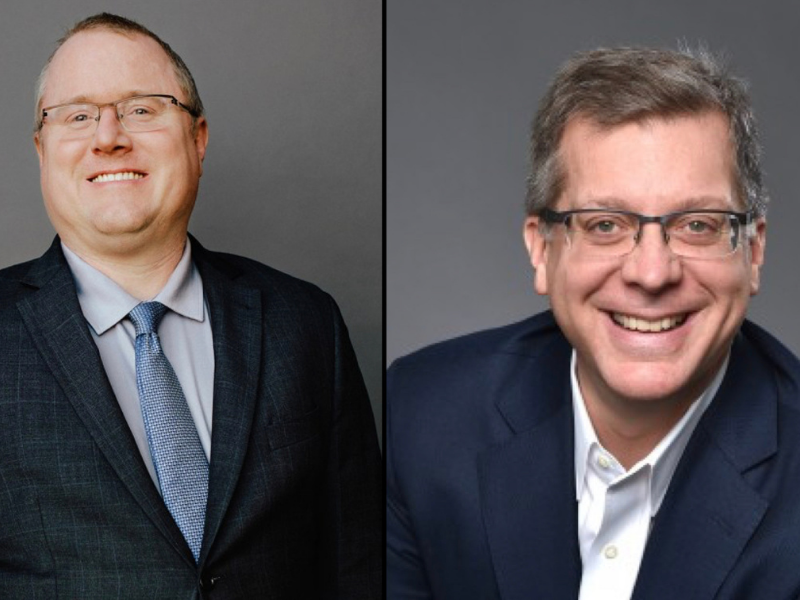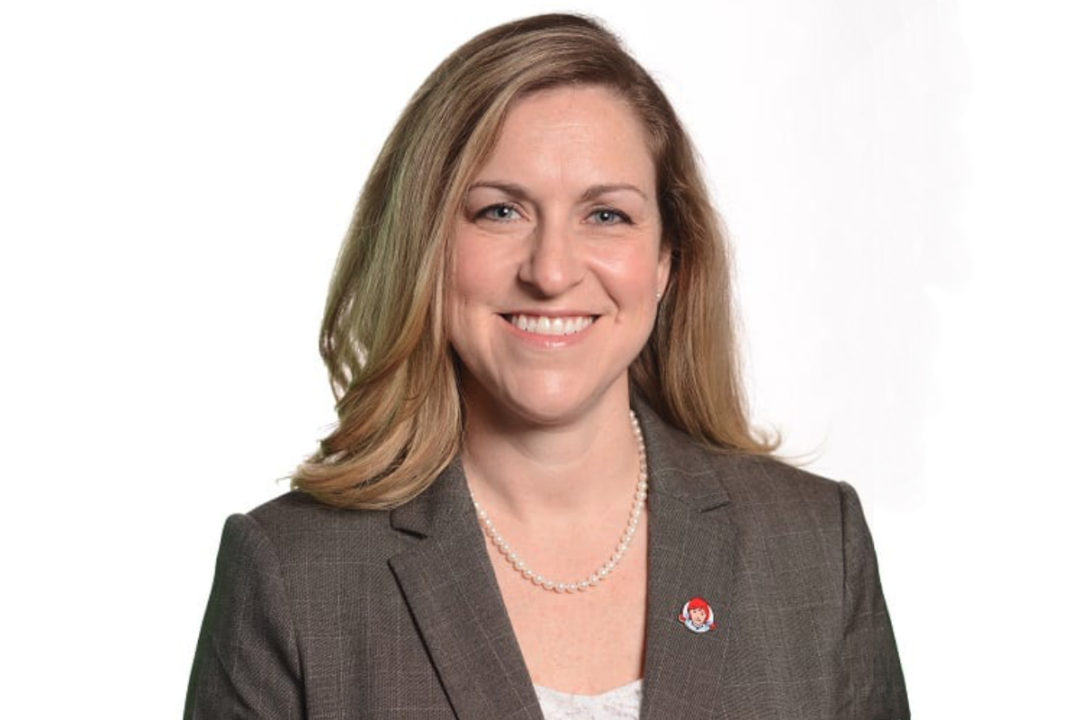Lippe Taylor 23 Jul 2021 // 3:37PM GMT

June Lee Risser is vice president and general manager for the US Galderma Consumer Care business. A strategic business leader with a passion for building great brands, June is responsible for leading the US commercial organization for the Galderma portfolio of consumer-available brands. These include Cetaphil Gentle Skin Care products, celebrating 70 years of healthy skin in 2017, and Differin Gel, the first FDA-approved, prescription-strength retinoid acne treatment available over the counter since 2017.
June joined Galderma in April 2016 as VP of marketing for the consumer business. In that role, she redefined the strategy and streamlined the structure of the marketing team to drive stronger growth for the priority brands of Cetaphil and Differin.
Prior to joining Galderma, June spent 12 years with Reckitt Benckiser in roles of increasing responsibility. During her tenure there, she led key consumer brands such as Lysol and Clearasil to new heights. As Global Innovation Director for the Personal Care Category based in the UK, she led strategic planning and innovation for Clearasil. Before that, June was a Managing Director in a brand strategy consulting firm in NYC, Vivaldi Partners, advising clients on marketing and growth strategies.
June holds a bachelor’s degree from Princeton University and a master’s degree from the JFK School of Government at Harvard University.
Here are some key takeaways from this conversation with June. Feel free to listen to the entire conversation on the Lippe Taylor Damn Good Brands Podcast at this link.
Boots on the ground = real commitment. Camp Wonder is the annual event for children suffering from skin disorders that Cetaphil sponsors and is particularly proud of. Instead of just drop shipping products, June and her team attend the event on a regular basis. They illustrate their commitment by being there. Furthermore, the experience invigorates her and her team because they get to experience the good that the brand does first hand, which is an incredible boost to morale (and therefore performance). Having a mission is critical for a brand, but you should make sure your teammates can witness the mission in action, up close and personal.
Maintain relevance by returning to your brand's core purpose. In this day and age, there are endless numbers of upstarts that are disrupting many businesses, CPG and Beauty in particular. To safeguard against this disruption, June recommends staying entirely in touch with what your brand's purpose was on Day 1, instead of constantly reevaluating who you are, which just confuses consumers. Third party endorsements can help tremendously--not just from doctors, but influencer experts as well. Marketing, however, is a constant struggle and requires pivoting and reevaluating your strategies and tactics regularly. But always make sure you keep your core principles top of mind throughout the journey.
Look for courage and integrity in new hires. When asked what she looks for when hiring new candidates, June, without hesitation, named courage and integrity. She went on to say that sales and marketing skills can be taught, but what cannot be taught are these two qualities that can tremendously enable an employee to have a consistently positive impact on the company's culture and bottom line, particularly during tough times like COVID-19. Find a way to seek these qualities out in your prospective employees in the interview process. This could be through stories of triumph over adversity or stories of courage. Integrity and courage can trump skills and experience in the long term.
Paul Dyer: June, thanks for joining us.
June Risser: Great to be here, Paul!
PD: So you have some amazing brands that you oversee, Cetaphil being one of them. Cetaphil is a brand that many of us have grown up with, and it's also a brand that has always appealed to a diverse consumer base. You're somebody who is very passionate about skin diversity. Can you tell us what that means to you and how it informs your marketing strategy?
JR: Cetaphil was founded over 70 years ago, and it really was designed and purpose-driven to be a brand that is appealing to anyone with sensitive skin. What we've found is that 70% of our consumers, in the US as well as globally, self-identify as having sensitive skin.
So at Galderma we think of skin diversity, we think about inclusion, and all of the different kinds of people, human beings, that experience sensitive skin--whether it's acne or disease states like rosacea, or whether it's skin of color along the Fitzpatrick scale. We're really trying to serve diverse needs of consumers and patients.
I think it's pretty cool that Cetaphil can be such an important brand in the lives of such a large group of consumers. And one of the really neat things about the brand is that it does appeal to young as well as old, to both men and women. And it is really a testament to the product quality, as well as the relevance of the brand, that we can still be a brand that people turn to after many, many years.
PD: That's a magic word these days: Relevance. In particular a lot of heritage brands, legacy brands, are struggling to maintain that relevance with a younger audience, with Gen Z. Across CPG and Beauty you've got young upstarts coming onto the scene every day. So what is the secret? How has Cetaphil maintained that 70-year legacy while still being a cool, young brand?
JR: I always go back to the core principle of great brands and great marketing, which is being really, really clear about what the brand stands for. Heritage brands can play a really meaningful and relevant role, especially when they are endorsed by dermatologists. We're also seeing the importance of third-party recommendations for brands.
It’s not just touting how good the brands are and how relevant they are, it is also having those third-party endorsements and staying relevant with a group of true experts. In terms of today’s consumers, Gen Z in particular, many of them may not be turning to dermatologists, but to “skinfluencers,” whether they're on TikTok or other social channels. These experts have also exploded in importance.
I think staying true to what the brand stands for, being relevant by communicating and telling your brand story--not just from the brand, but through others that are experts in your field, in the world of skincare--that's really part of what makes the DNA of Cetaphil and how we stay relevant today across all of the channels.
PD: One of the great debates in marketing right now is about brand building vs. product marketing, and a lot of these young upstart brands are being built on the backs of programmatic marketing in more lower-funnel tactics. What’s your opinion on brand building versus product marketing in the lower funnel focus?
JR: I would say that in the world of marketing planning, this is something that has truly changed and will continue to be transformed. In the past, there was that typical annual brand plan. Planning in advance is important, absolutely, but you're also needing to plan and adjust and pivot and flex across brand initiatives, power skews, and NPIs that you're supporting that are more lower-funnel, driving to commerce, driving to conversion, driving to trial and sales.
It's that constant pivoting and re-evaluating your marketing mix on a regular basis that's truly much more hands-on-keyboard for all marketers--even all the way up to Chief Marketing Officers and General Managers. There is no more of this “set it and forget it” approach to annual brand planning. You're constantly looking at the mix of your marketing.
PD: In many ways, it's exciting to be having informed pivots. Because you're drawing to mind the classic Eisenhower quote: "Plans are useless, but the act of planning is invaluable."
JR: That's right.
PD: You said that Cetaphil was born as a purpose-led brand. And then you mentioned following your values. There’s something that Cetaphil, you and your team, have done for years now with a place called Camp Wonder. I was hoping you would explain to our listeners and readers the impact that's had on your teams, your staff, as well as the brand.
JR: Camp Wonder is a camp in California that has been going for over 20 years, that serves children with serious skin diseases. It is the one week out of the year where we are able to bring these children together to experience childhood and joy with other children who suffer from serious skin diseases. It's put on by a nonprofit called the Children's Skin Disease Foundation. And I'm really proud to say that Galderma and Cetaphil have been sponsors and partners with this organization to really make a difference in the lives of children.
I have personally experienced the camp out in California, and I can tell you one story. One of the campers that I met, who loves horses, was able to go horseback riding for the very first time at Camp Wonder. It's just a chance for them to really feel normal, because many of these children are in wheelchairs. We have a med tent where our medical staff and dermatologists are on call, but it's just a tremendous way for Cetaphil and Galderma to truly play a role in the lives of children who are impacted by skin diseases.
That goes back to the conversation earlier about a brand being true to what it stands for. And Cetaphil certainly has a role to play in that commitment to skin health, which is why we're so passionate about Camp Wonder and just helping the children.
PD: What I love about that story is, as you mentioned, you were actually there. It wasn't just drop shipping product. You and people from Galderma were actually there and really involved, and I think that that's a testament to the passion that you mentioned.
I'm curious, how has this past year—managing a large team remotely, customers who are operating totally differently--affected your overall leadership style and communications approach with your team, your customers, and all your different stakeholders?
JR: Covid-19 has impacted so many people around the world, and people really are the heart of my leadership and have been the number one priority through the pandemic. It is important to have great brands and great products and a great pipeline, but people make the business.
In terms of Covid-19 and leadership, it really was about communication and visibility when we were all forced to work remotely. I truly believe that the future will be more flexible. We'll be more connected, and we'll be even more technology-enabled. So flexibility, connection, and technology have been critical to allow teams to come together during Covid times, interacting with dermatologists, interacting with customers like Wal-Mart, interacting with colleagues and employees in ways that we never thought we could before.
PD: Women in leadership, and the importance of mentorship for women, are topics close to our hearts. Have you benefited from a mentor throughout your career who helped you get where you are? And what advice would you give to people who are thinking to themselves, "I would like to find a mentor, but I don't know where to start”?
JR: Women in leadership positions is also a passion point of mine. And I fully believe that it is important to help other women stand up in organizations through active mentoring and also role modeling and coaching. Maureen (Lippe) definitely has been an inspiration to me personally.
Within Galderma, we have employee resource groups, and I'm proud to say that I lead our multicultural employee resource group. We also have networks for helping women leaders. So it is important that companies not just talk the talk, but walk the walk, with true initiatives and support. Throughout my career, I have consistently looked to women leaders for help, coaching, and guidance. And I would encourage those who are looking for advice and mentors to take some risks: network outside your comfort zone, reach out. More often than not, women leaders are open to just taking the time to tell their stories, which might open a different path for your next career move. Taking risks is important, and having another woman leader to talk to is important.
PD: What are the mindsets or the capabilities future marketing leaders need to embrace?
JR: I think the new pivot is going back to people. In my role as a General Manager, a lot of the time I spend is on coaching and developing the talent and the amazing people that are on the team already, but then also finding and hiring new talent and interviewing new hires. Because that diverse fabric of your team and your employees makes the marketers of the future, makes the salespeople of the future, makes the functional leaders of the future, that will ultimately drive brand growth. So putting people first and really spending time there is important to me in my role as a General Manager, and certainly will continue to be important.
When it comes to marketing pivots, I do not believe in "digital marketing." I believe in marketing. And that means talking to consumers, dialoguing with consumers, and communicating with consumers on any channel that they choose.
This divide between non-digital and digital is a somewhat false story. I would encourage marketers of the future to really go back to the core principles of understanding your consumer, what makes them tick, what is important to them in their lives, and then ask how your brand can be relevant to them.
You have to stay on your toes and understand all of those. But going back to those core principles of knowing your consumer, and putting your consumer or your patient or your customer first, that is absolutely going to be an enduring trend in the world of marketing, no matter how many new digital channels come on the scene.
PD: You've made a lot of hires yourself. What do you look for when you're hiring?
JR: Fundamentally two things: courage and integrity. Courage goes back to taking risks and really showing through examples, through behaviors, the kinds of skills that it takes for leading brands and companies into the future and really having the courage to make those bold moves.
And then integrity really goes back to what the prospective employee stands for, in terms of their own core values. Are they committed to doing the right things for their brand, for their teammates, for their company, for their customers? Having that integrity is absolutely important. Because marketing skillsets and sales skillsets can be trained, but courage and integrity are core to the fundamentals of what that person stands for. They can cut through a lot of the questions as you're seeking to hire great new talent.
PD: Courage and integrity. That’s a wonderful place for us to wrap up our conversation. June, thank you so much for your time and for sharing your insights here today.
JR: Thank you so much for having me, Paul. Have a great day.


































.jpg)














